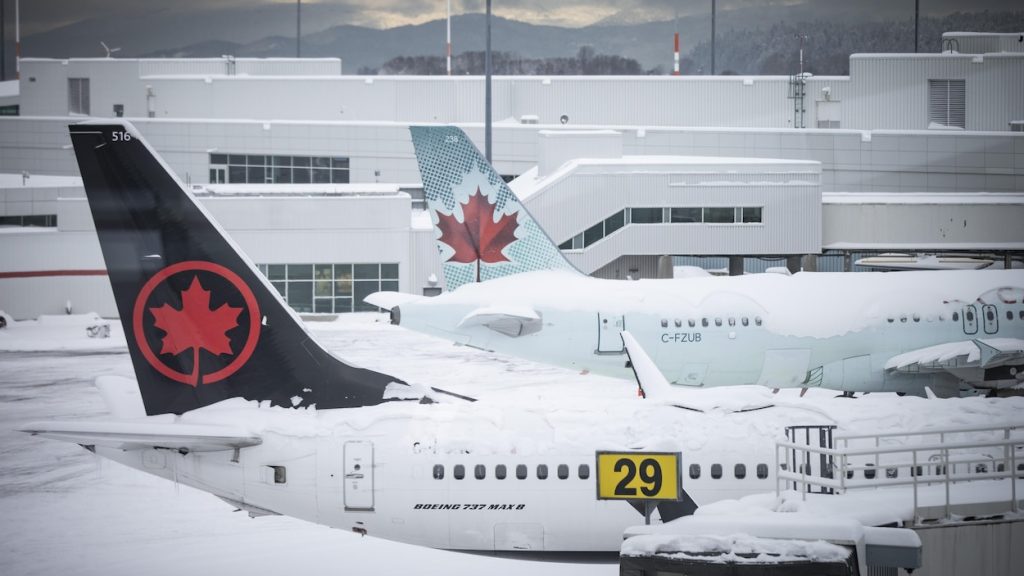
Air Canada ranked last in on-time performance among major North American airlines in 2023, according to a report from aviation data firm Cerium.
Canada's largest air carrier saw 63% of its flights arrive on time last year. The company ranks last among the 10 largest airlines in North America. About 140,000 flights arrived at the gate late (more than 15 minutes after the scheduled time).
This number is five percentage points lower than the second and third lowest carriers, respectively JetBlue Airways And Frontier Airlines.
WestJetThe other major Canadian carrier ranked seventh with an on-time performance rate of 69%.
Meanwhile, Delta Air Lines leads the way with a rate of 85%, followed by Alaska Airlines, at 82%.
Air Canada explains
Air Canada announced these results Reflects the challenges that have affected Canada's air carriers throughout the year
.
However, our operations continued to improve, meaning that by the end of the year our monthly on-time performance had increased by more than 10 percentage points compared to July, a significant increase.
its spokesman Peter Fitzpatrick said in an email.
Reducing the number of delayed and canceled flights is a priority for the company.
In the past, Air Canada has noted that shortages of air traffic controllers, weather conditions and high demand can take longer before a network operating at full capacity recovers from a period of disruption.
President and CEO Michael Rousseau acknowledged that Air Canada's on-time rate is below normal, especially after flight delays in June and July.
Winter barriers
Even with more staff and technology investments, a carrier's workflow doesn't always match up Expectations
he told analysts during a conference call in August.
Air Canada's big boss blames him for his woes Severe weather conditions
– particularly hurricanes – and global supply chain issues. We spend a lot of time improving our timing
He insisted.

Michael Rousseau has been the CEO of Air Canada since February 2021.
Photo: Bloomberg
He also acknowledged that high occupancy rates — when almost all seats on flights are reserved — have led to knock-on effects after flights are canceled, as passengers rush to rebook with competitors and arrive hours or days later than expected.
There may be other reasons for delay. Cold weather in Canada means, for example, that in October airplanes must be de-iced, runways must be de-iced, and landing and take-off times are greatly extended.
Winter constraints make it difficult to achieve on-time rates in Canada similar to those observed in the United States.
Relatively mild temperatures across the country during the holidays allowed most travelers to travel without difficulty. The result contrasts with reports of difficult travel last year, when thousands of passengers saw their flights delayed or canceled mostly due to adverse weather conditions.





More Stories
Sportswear: Lolle acquires Louis Garneau Sports
REM is still innovative enough to foot the bill
A trip to the restaurant with no regrets for these customers